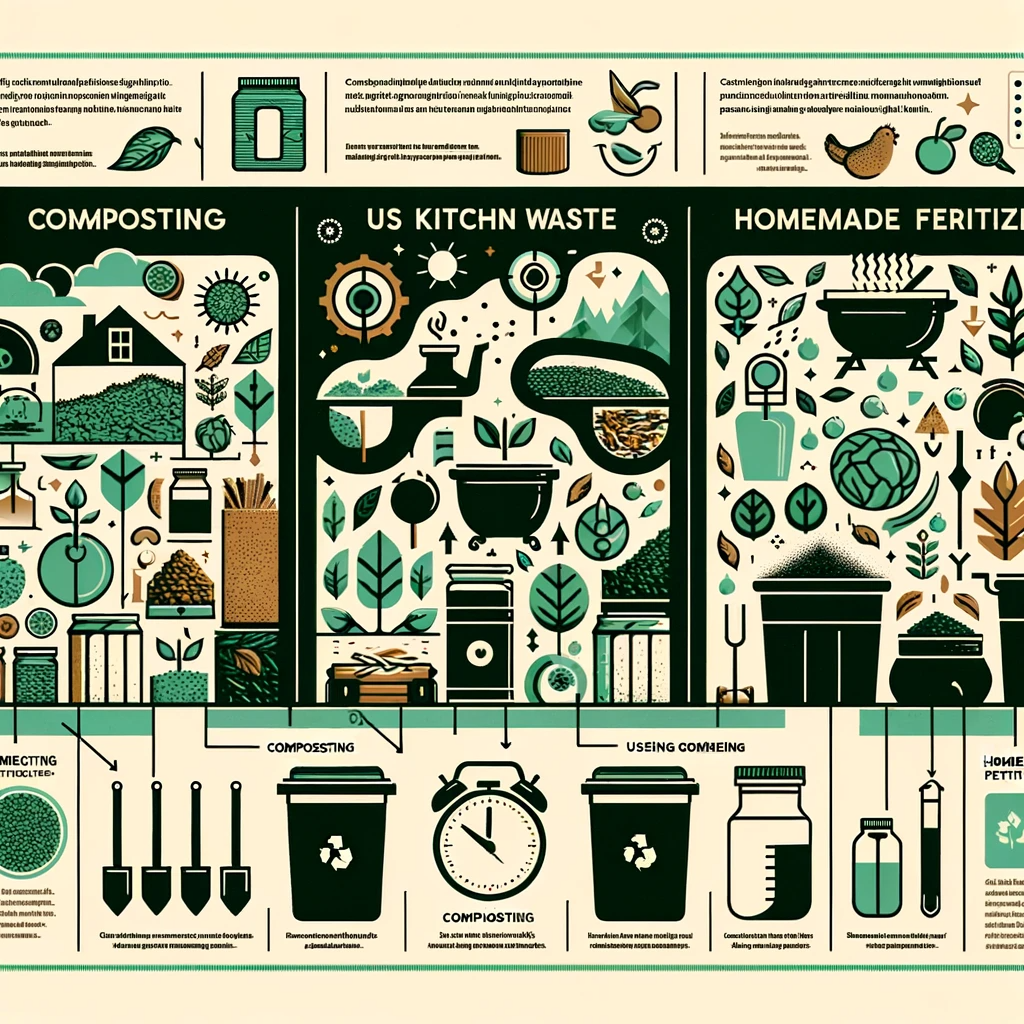Introduction: In today’s eco-conscious world, organic fertilizer techniques have become increasingly pivotal. These methods not only nourish plants but also protect our environment. Spanning an approximate 7-8 minute read, this comprehensive article delves into various effective organic fertilization strategies, including homemade fertilizer recipes, composting, and using kitchen waste.
Understanding Organic Fertilization: Organic fertilization fundamentally employs natural materials to enrich soil and bolster plant health. In contrast to synthetic fertilizers, organic options release nutrients more slowly, ensuring a consistent and balanced nutrient supply.
1. Composting: Turning Waste into Wealth Composting, a crucial aspect of organic gardening, involves decomposing organic matter like leaves, kitchen scraps, and garden waste. As a result, this process creates a nutrient-rich humus, significantly enhancing soil structure and fertility.
Getting Started with Composting:
- Firstly, select a suitable bin or a spot in your garden for your compost pile.
- Then, layer green (nitrogen-rich) and brown (carbon-rich) materials.
- Regularly turning the compost helps facilitate aeration and decomposition.
- Finally, keep the compost moist, but not overly wet, to maintain the right environment for decomposition.
2. Kitchen Waste: Unleashing Hidden Nutrients Kitchen scraps, a treasure trove for gardens, transform waste into nutrient-rich compost. Eggshells, coffee grounds, and vegetable peels can be directly added to the soil or compost bins.
Maximizing Kitchen Waste:
- Crushing eggshells before adding them to the compost aids in quicker decomposition and provides calcium enrichment.
- Moreover, mixing coffee grounds into the soil or compost improves nitrogen content, which is vital for plant growth.
- However, it is important to avoid adding meats, dairy, or oily foods to your compost to prevent odors and pests.
3. Crafting Homemade Organic Fertilizers Creating your own fertilizers can be both cost-effective and eco-friendly. Here are some simple recipes:
- Banana Peel Fertilizer: Soaking banana peels in water for a few days creates a potassium-rich fertilizer.
- Eggshell and Coffee Ground Mix: Combining dried, crushed eggshells with coffee grounds makes for a nutrient-rich sprinkle around plants.
4. Embracing the Benefits Organic fertilizers enhance soil health over time, leading to healthier, more resilient plants. Furthermore, they foster beneficial microbial activity in the soil, which is crucial for plant nutrition and disease resistance.
5. Tailoring Fertilization to Plant Needs Different plants have varying nutritional requirements. Accordingly, this section will delve into customizing organic fertilizer mixes for specific plant types, ensuring optimal growth and health.
- Understanding the nutritional needs of different plant species is essential.
- Customizing organic fertilizer blends for specific plants can be highly effective.
- Additionally, monitoring plant health and adjusting fertilization as needed is crucial.
6. Seasonal Adjustments in Fertilization Seasonal changes significantly impact plant growth and nutrient needs. Therefore, this part of the article explores how to adjust fertilization techniques according to the seasons for maximum effectiveness.
- Adjusting fertilization strategies for spring growth spurts is necessary.
- Reducing or altering fertilization in the hot, dry summer months is often beneficial.
- Preparing plants for winter with appropriate fertilization in autumn is also important.
Conclusion: Ultimately, adopting organic fertilizer techniques is a significant stride towards sustainable and responsible gardening. By using natural materials, gardeners not only feed their plants but also contribute to a healthier ecosystem. Embrace these methods and witness your garden’s remarkable transformation.










